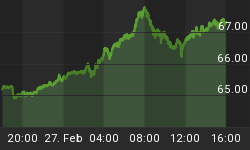The Trump administration has tried to thread the needle between the corn ethanol and oil refining industries, as the two battle it out over federal policy. The EPA may have thought it came up with a balanced approach when it issued a series of recent decisions, but judging by market reactions, the agency seems to have decidedly come down on the side of oil over ethanol.
Federal policy requires a certain volume of biofuels to be blended into the nation’s fuel mix. Each year, the EPA decides on the exact levels, and it is a bit of a zero-sum game between ethanol producers and oil refiners. The ethanol industry wants higher blending levels because that expands sales, while refiners want less in order to defray costs.
While perennially at odds, the two industries were at a bit of standstill for much of the Obama administration because while both sides surely had their gripes, there at least was some predictability about government policy.
That all changed under the Trump administration, and specifically, under the stewardship of Scott Pruitt, former administrator at EPA. Under his tenure, EPA ramped up the number of waivers that it granted to the refining industry, absolving some smaller refiners of the requirement to buy ethanol who claim the obligation would inflict economic hardship.
The move upset a fragile balance between the two industries, infuriating farmers and ethanol producers. The market for renewable identification numbers (RINs), which are the credits refiners can buy to offset their blending obligations, went haywire after the increase of waivers from EPA. The lack of policy clarity led higher volatility and lower prices for RINs, and politicians from farm states – allies of President Trump – demanded EPA stop issuing so many waivers. Trump tried to stay above the fray, fearing angering one side over the other, and told his lieutenants to hash out a compromise.
Trump even proposed allowing the year-round sale of E15 – a higher concentration of ethanol that was off limits during summer months over air pollution concerns – as a way of making amends with corn and ethanol producers. Related: Protests Threaten $5 Billion Peruvian Copper Mine
But the administration just issued a shocking decision to the corn and ethanol industries. On August 9, the EPA announced its decision on 2018 waiver requests, approving 31 of them while denying six. The decision appears to be an attempt to offer something to both sides, but the biofuels industry was incensed. “The Trump Administration’s approval of 31 refinery exemptions from the Renewable Fuel Standard is just devasting news for our industry,” saidIowa Renewable Fuels Association (IRFA) Executive Director Monte Shaw in a press release. “With this action, President Trump has destroyed over a billion gallons of biofuel demand and broken his promise to Iowa voters to protect the [Renewable Fuels Standard].”
Ahead of the announcement, prices for RINs plunged to 11 cents, down from 20 cents a day earlier, according to Argus. “At a time when ethanol plants in the Heartland are being mothballed and jobs are being lost, it is unfathomable and utterly reprehensible that the Trump Administration would dole out more unwarranted waivers to prosperous petroleum refiners,” Geoff Cooper, CEO of Renewable Fuels Association, said in a statement, calling the EPA decision a “total shock.”
Refiners, on the other hand, welcomed the decision. “Capital planning is difficult without knowing whether your refinery needs to set aside millions of dollars for RIN purchases,” the Small Refiners Coalition said. “The decision to grant small refinery hardship is a legal decision, not a political one.”
For farmers, the hits keep on coming, and EPA’s decision is merely the latest in a series of blows from Washington. The U.S.-China trade war has battered the U.S. Midwest, as farmers have all but lost access to the Chinese market. China has turned to Brazil for ethanol and for soybeans. Prices for U.S. soybeans, corn and other agricultural commodities have plunged. Related: Chinese Tech Giant Tencent Completes Asia’s Largest Bond Sale
More recently, corn prices rebounded, but only because the Midwest was soaked in record-breaking floods that threatened corn plantings. However, the latest data from the U.S. Department of Agriculture shows that yields are not expected to be as hard hit as previously expected – normally good news, but higher-than-expected supply sent corn prices tumbling all over again. On Monday, corn futures fell by the “limit down,” or the maximum allowed before trading is cut off.
Futures prices for corn-based ethanol plunged to a five-year low for the time of year, falling to $1.27 per gallon on Wednesday, down roughly 25 percent since June. “The Trump administration has totally annihilated the margins for ethanol producers,” Charlie Sernatinger, head of global grains futures with ED&F Man Capital Markets, told the Wall Street Journal.
Meanwhile, the U.S.-China trade war is in danger of escalating, despite the decision by Trump to hold off until December. The Trump administration has offered payouts as compensation to farmers hit by the trade war, but financial stress in the agricultural sector is growing. Bankruptcies are rising sharply.
Inflicting so much pain on a key political constituency seems risky, although it’s unclear if there will be a change in policy on either the trade war or on ethanol. Farmers were clearly on Trump’s mind Thursday morning.
"Our Great Farmers know how important it is to win on Trade. They will be the big winners!"
By Nick Cunningham of Oilprice.com
















